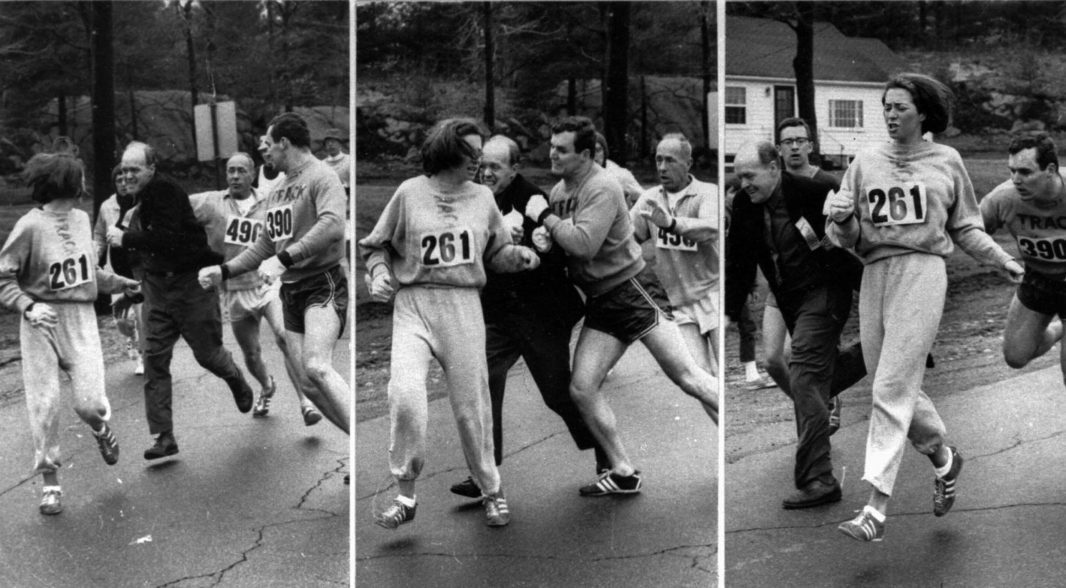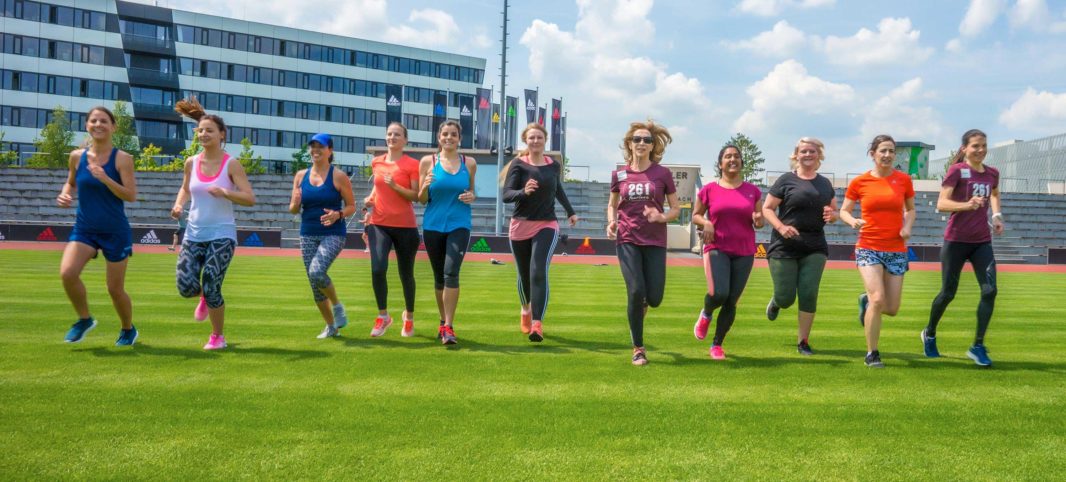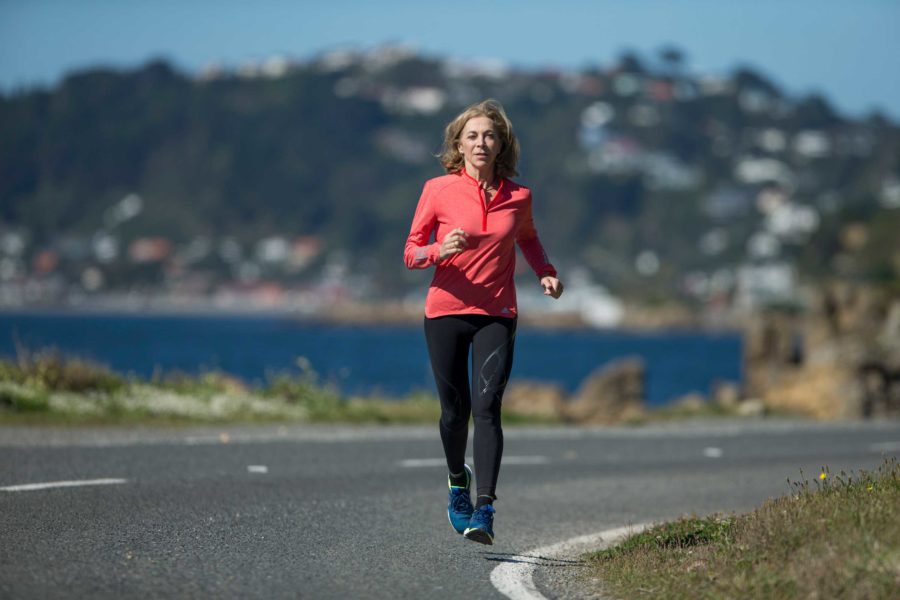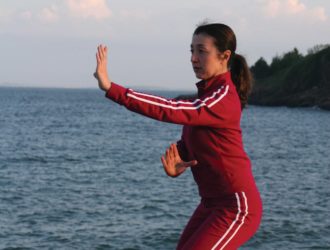On April 19, 1967, Kathrine Switzer became the first officially registered woman to run the Boston Marathon. But, it was not an easy road. During the race, Switzer was assaulted verbally and even grabbed by an official who was desperate to get her off the course.
Halfway through those challenging 26.2 miles, the race stopped being about running and became about women all over the world.
“It was an event that changed my life, and consequently an event that changed millions of women’s lives,” says Switzer.
Not only did her run inspire women worldwide, it launched Switzer’s lifelong advocacy for women in athletics.

Photo courtesy of Kathrine Switzer.
An official grabbed Switzer and tried to remove her forcefully from the course.
In 2015, she launched 261 Fearless, a global nonprofit that empowers women to run, and consequently, own their own power and their own lives. Today, the nonprofit operates in 11 countries.
Through noncompetitive running groups and clubs, 261 Fearless teaches women to harness themselves through physical exertion. Switzer stresses that it’s not about running marathons or building competitive times, it’s just about putting one foot in front of the other.
“There are more women runners right now in the United States than men. But, the reality is that most women in the world still live in a fearful situation,” says Switzer. “We think that she’s under a burqa some place, but she could be your next-door neighbor. She probably is your next-door neighbor.”
Switzer wore the number 261 during that first fateful run of the Boston Marathon. She says she was inspired to launch the nonprofit after hearing so many stories of women who drew strength from her story and from that number.

Photo courtesy of Kathrine Switzer
261 Fearless inspires women to harness their power through running.
At the Simmon’s Leadership Conference earlier this month, Switzer spoke to women about owning their power at any age.
“As your career goes, sometimes later in life you really come out strong. It’s not just your prime years of 30, 40, 50. Sometimes, later, things can happen, too,” she says.
In addition to establishing 261 Fearless, Switzer was instrumental in establishing a women’s marathon in the Olympic Games, for the first time in 1984.
She created and organized a series of global races called the Avon International Running Circuit, which illustrated the number of powerful women prepared to run at the Olympic level. Between the circuit and intensive lobbying with women’s athletic organizations, the race was pushed through. During the very first Olympic Women’s Marathon, it was Switzer who stood in the broadcast booth reporting for ABC-TV Network sports.
According to Switzer, the most important thing — in running and in life — is to stay connected to yourself, no matter how many responsibilities you may be juggling.
“The best thing to do, first of all, is to get your own sense of self-esteem together and feel confident in what you do,” she says. “You can’t water the world if you’ve only got a sprinkling can.”



 2 min read
2 min read



